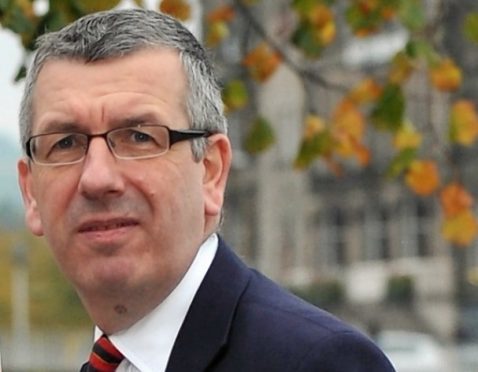A Highland MSP has called for all convicted drink and drug drivers in Scotland to be forced to undertake a rehabilitation scheme.
Scottish Labour’s David Stewart has written to Justice Secretary Michael Mathieson asking the Scottish Government to consider making the Drink/Drug Driving Rehabilitation Scheme (DDRS) mandatory for convicted drink/drug drivers in Scotland.
Currently, it is only an option for a sheriff to refer offenders for DDRS.
Mr Stewart said: “Drink driving is still an issue that we need to address.
“Here in Scotland I was one of the many MSPs who pushed for and the Government enacted the reduced drink drive limit for alcohol from 80mg to 50mg in every 100ml of blood.
“During a week long Police Scotland campaign in May 2017, 121 drivers were detected for drink driving offences following 3619 breath tests carried out, which equates to one in 30 of every test carried out, which is one in 30 too many.
“Clearly there is a need for education with regards drink and drug driving. This is where the DDRS comes in to enhance all that is currently being done.”
He added: “The course combines presentations, group exercises, group discussions and videos used in conjunction with a course workbook with various exercises to complete and is all geared to educate the convicted driver as to the error of their ways.
“Let’s face it, if the convicted driver is not referred to such a scheme, where are they to be educated as to the danger they pose to other road users and what is to stop them continuing to drink/drug drive once their ban has been completed.”
The DDRS is an informal educational training workshop that provides participants with knowledge to reduce the likelihood they will be re-convicted of drink/drug driving again.
Mr Stewart said the incentive for the drink/drug driver is that if they complete the course they can not only get up to 25% off their driving ban, but also become more responsible and safer drivers in the process.
A Scottish Government spokesman said: “Scotland will be at forefront of efforts across the UK to tackle drivers who either drink or take drugs – with both the lowest drink-drive limit operating in these islands and drug-driving limits in place.
“We lowered the drink-driving limit in 2014, as evidence showed this could save lives.
“A new criminal offence of drug driving will be created over the next year and come into force in 2019.”
